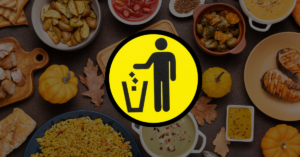Last updated on June 12th, 2024 at 09:41 pm

The Food Safety and Standards Authority of India (FSSAI) has recently banned several food items to safeguard public health. This decision follows a comprehensive assessment of the health risks associated with these products, some of which contain high levels of harmful compounds or ingredients not recommended for consumption. The ban aims to protect consumers from potential health risks such as chronic diseases, foodborne illnesses, and other conditions. By removing these hazardous foods from the market, the FSSAI hopes to promote healthier eating practices and improve the overall quality of food. Here is a complete list of the items banned by FSSAI in India:
1. Sassafras Oil
Sassafras oil was banned by the FSSAI in 2003 due to its high concentration of erucic acid, which increases the risk of heart disease and other health issues, thus protecting consumers’ cardiovascular health.
2. Chinese Garlic
In 2019, FSSAI banned the import of Chinese garlic into India because of concerns about high pesticide residue levels. This prohibition highlights the need for strict regulations and quality control measures to ensure public health and food safety.
3. Brominated Vegetable Oil (BVO)
Brominated vegetable oil, commonly found in citrus-flavored drinks, is banned or restricted in over 100 countries due to health concerns, including potential thyroid and neurological issues.
4. Rabbit Meat
Rabbit meat is banned in India due to religious sensitivities and animal welfare concerns. Hindus refrain from consuming rabbit meat, aligning with Indian cultural values of compassion and respect for all living creatures.
5. Genetically Modified Foods (GM Foods)
India restricts the import and production of genetically modified foods due to environmental, biodiversity, and health concerns. While commercial cultivation is permitted, it is subject to stringent approval procedures.
6. Potassium Bromate
Potassium bromate, a food additive used to increase bread volume and dough flexibility, was banned by FSSAI in 2016 due to its potential cancer risks, including thyroid cancer. The International Agency for Research on Cancer has classified it as a possible carcinogen.
7. Chinese Milk and Milk Products
Chinese milk and milk products were banned by FSSAI in 2008 following food safety crises in China, such as the melamine milk scandal that resulted in numerous deaths. This ban aims to protect Indian consumers from contaminated products.
By enforcing these bans, FSSAI emphasizes the importance of regulatory oversight in maintaining food safety standards and protecting public health.